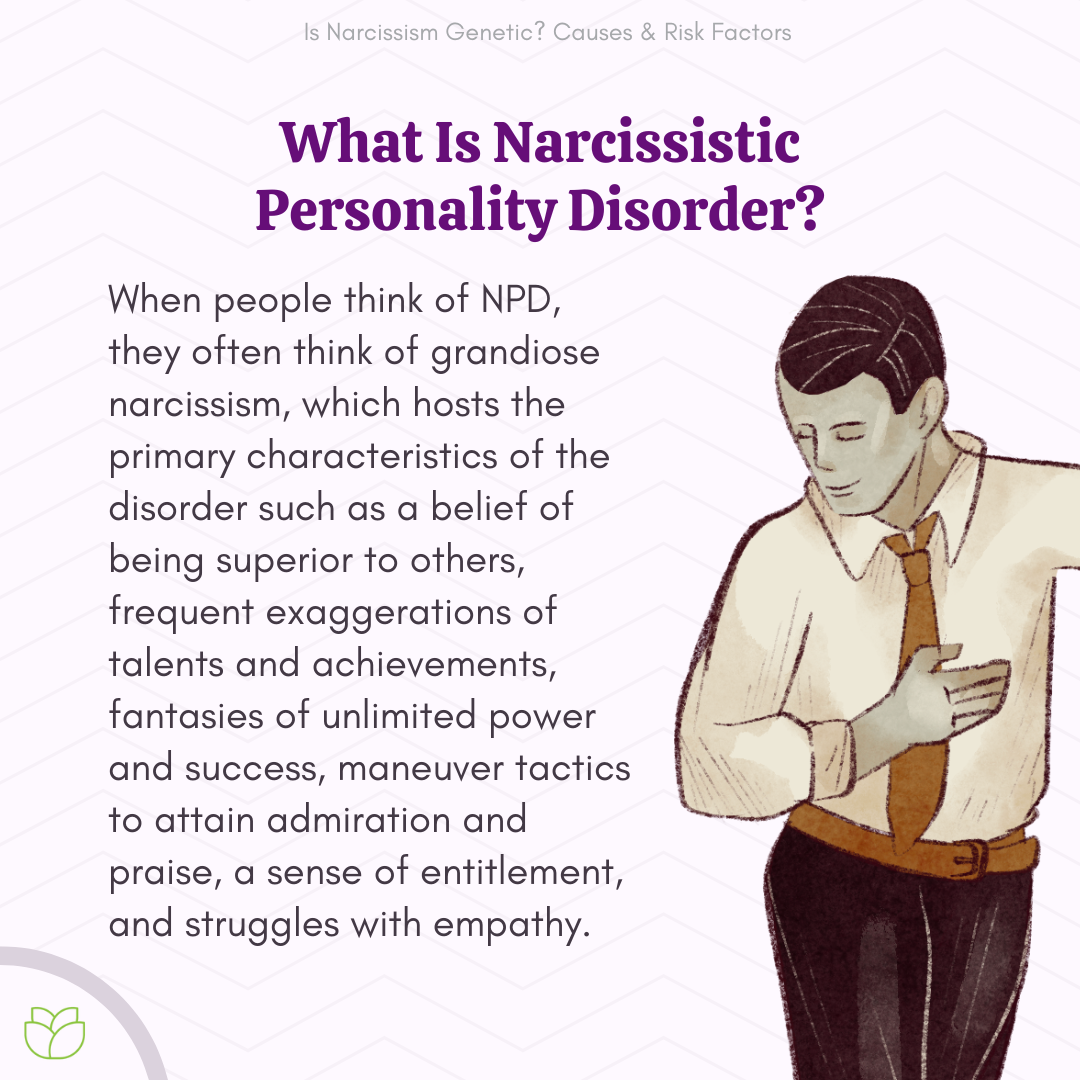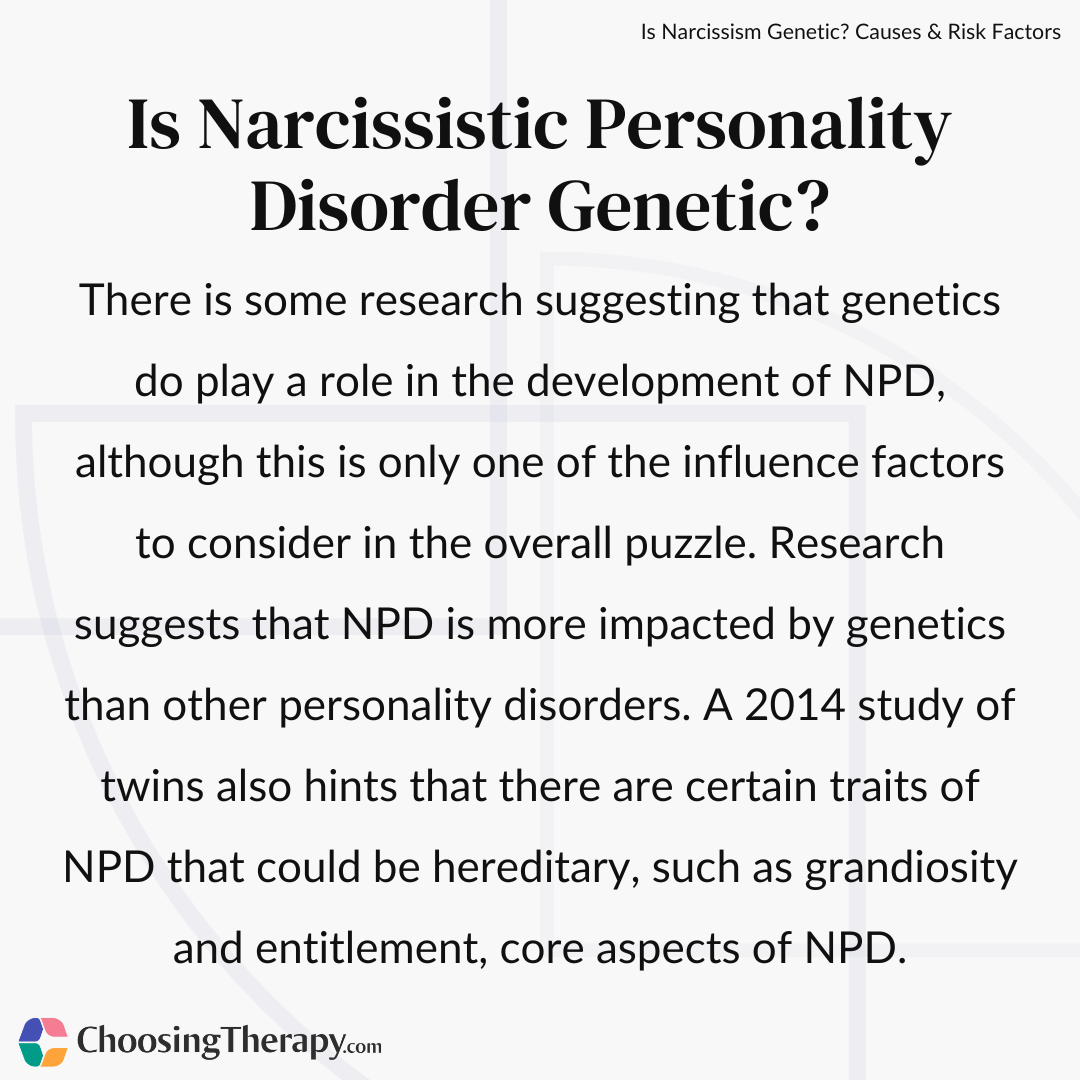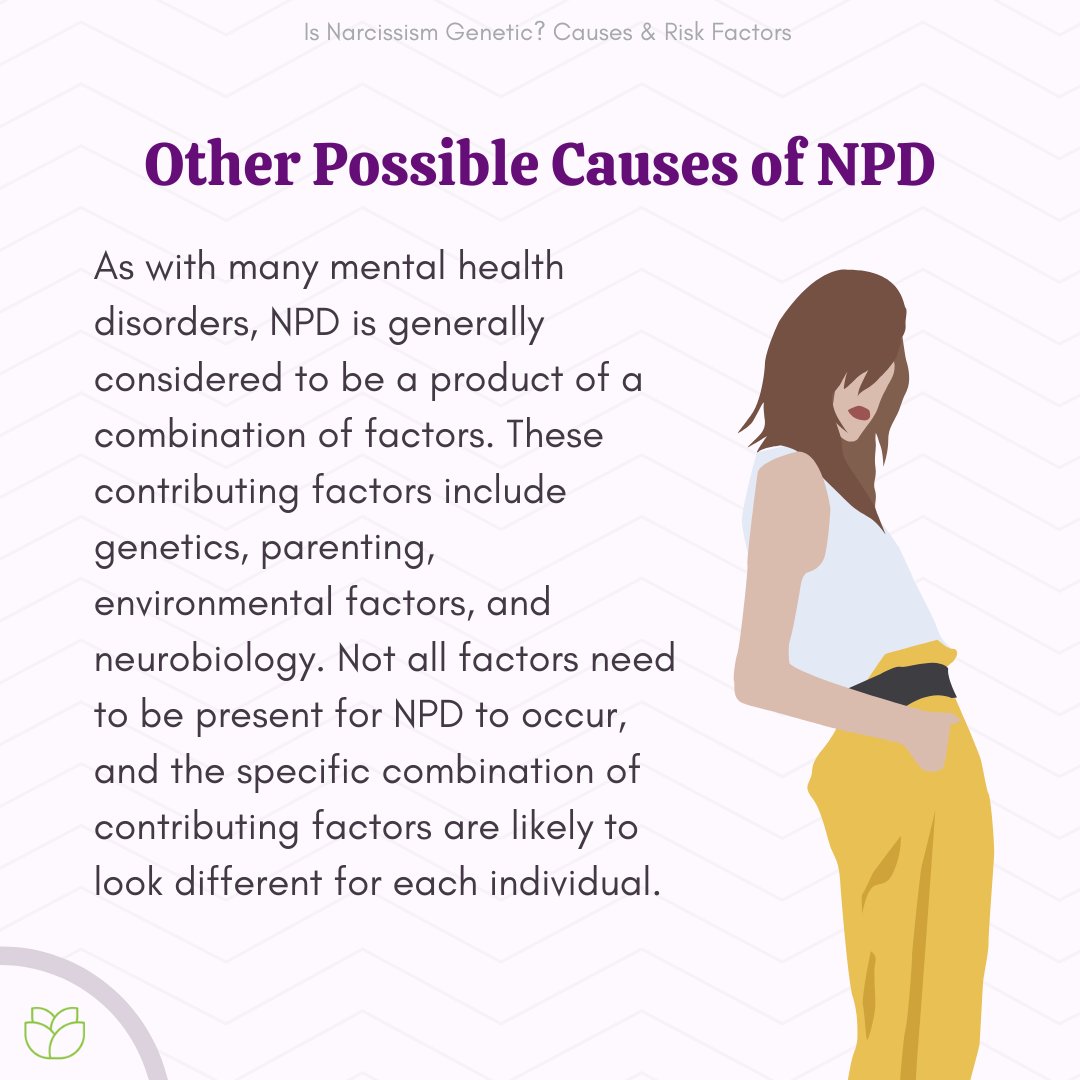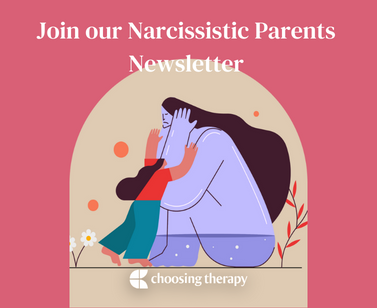Narcissistic personality disorder (NPD) is a complex Cluster B personality disorder of which the exact cause has not been pinpointed. It is believed to result due to a combination of genetic and environmental factors, as well as parenting styles. While personality disorders are considered to remain stable over time, they can be managed with an effective and inclusive treatment plan.
You Can Escape From A Narcissist.
Therapy can help you leave or recover from a narcissistic relationship. BetterHelp has over 20,000 licensed therapists who provide convenient and affordable online therapy. BetterHelp starts at $65 per week. Take a Free Online Assessment and get matched with the right therapist for you.
What Is Narcissistic Personality Disorder?
When people think of NPD, they often think of grandiose narcissism, which hosts the primary characteristics of the disorder such as a belief of being superior to others; frequent exaggerations of talents and achievements; fantasies of unlimited power and success; maneuver tactics to attain admiration and praise; a sense of entitlement; and struggles with empathy.1
There is also another type of narcissism known as vulnerable narcissism. Someone in this subtype will hold many of the same internal beliefs about themselves, but their external presentation is usually more subdued. Vulnerable narcissists are less vocal about these beliefs, because they hold more intense shame than other narcissists, struggle with criticism, and generally need more reassurance.
Is Narcissistic Personality Disorder Genetic?
There is some research suggesting that genetics do play a role in the development of NPD, although this is only one of the influence factors to consider in the overall puzzle. Having a close family member with NPD could increase the risk of developing this personality disorder; although, this close family member could contribute both in terms of heredity and environmental impacts (particularly if this close family member is a parent).
What Does It Mean For Something to Be Hereditary?
Something being hereditary refers to its ability to be passed down from generation to generation, or from parent to child through biologically shared DNA. This includes the specific traits that a child inherits from their parents (and previous generations). We often think of inherited physical traits (such as eye or hair color, blood type, or disease-based traits) more readily, but inherited traits can also include behavioral aspects such as vulnerability to stress, temperament, and neuroticism.
What Does Research Say About NPD & Inheritance?
Research does suggest that NPD is more impacted by genetics than other personality disorders.2 A 2014 study of twins also hints that there are certain traits of NPD that could be hereditary, such as grandiosity and entitlement, core aspects of NPD.3
Are you dating or married to a narcissist?
Whether you’re trying to move on or rebuild a relationship, a licensed therapist can guide you. BetterHelp has over 20,000 licensed therapists who provide convenient and affordable online therapy. Visit BetterHelp
Is your mother, father, or family member a narcissist?
Being raised by a narcissist can damage your confidence and self-esteem. A therapist from Online-Therapy can help you both heal from the past, and manage the relationship to be less harmful. Counseling starts at $50 per week. Try Online-Therapy
Other Possible Causes of NPD
As with many mental health disorders, NPD is generally considered to be a product of a combination of factors. These contributing factors include genetics, parenting, environmental factors, and neurobiology. Not all factors need to be present for NPD to occur, and the specific combination of contributing factors is likely to look different for each individual.
Parenting
Genetic contributions are not the only way that parents can contribute to the development of NPD–parenting style can also have an impact as well. A child feeling like their parents were overprotective or did not provide much structure and boundaries may indicate a higher possibility of the development of NPD.4 While these traits are often associated with helicopter parenting and snowplow parenting, they can display in any parenting style. It’s also important to note that abusive and neglectful parenting (emotional, physical, or psychological) can also contribute to NPD.
Environmental Factors
Other family members, caretakers, and even interactions within school and extra-curricular activities are environmental factors to consider as well. On a broader scale, cultural factors can influence the onset of NPD, such as the rise in social media usage and consumption, celebrated narcissistic behaviors in celebrities, and even a cultural pattern of “collective narcissism”–-the overvaluation of oneself and the groups to which they belong.5 Additionally, individualistic societies seem to show higher levels of narcissism than collectivist societies that prioritize the good of the group over the individual.6
Neurobiology
A person’s brain composition can also play a role in NPD, including one’s brain chemistry and structural development. One area of the brain that has been specifically studied in relation to NPD is the insular cortex–a lobe within the cerebral cortex responsible for translating sensory information into either emotional pleasantness or unpleasantness of that sensory information.
Often, the brains of those with NPD reflect lower levels of grey matter within their insular cortex.7 The more grey matter that is present in an area of the brain, the more efficiently and effectively it is able to operate.
How Is NPD Diagnosed?
Narcissistic personality disorder is typically diagnosed by a mental health professional, which can include a licensed therapist, psychologist, or psychiatrist. They typically do this by talking through an individual’s thoughts, feelings, behaviors, and personal history. It can also be helpful to include close friends and family who can provide an external view of a person’s behaviors and overall patterns. Sometimes a mental health professional will also conduct personality tests/questionnaires to check for narcissistic traits.
To receive an NPD diagnosis, a person must display at least five of the following traits:
- Overinflated sense of self-importance
- Fantasies about being more successful, powerful, smart, loved, or attractive than others
- Feelings of superiority to others that leads to only associating with high-status people
- Need for excessive admiration
- Feelings of entitlement
- Using others for self-gain
- Lack of empathy
- Arrogance or snobbery
Therapy for Narcissistic Personality Disorder
NPD is difficult to treat for a couple of reasons. The first is that most narcissists are naturally avoidant of treatment because they don’t see an issue with their beliefs and behaviors; they typically feel they do not need help. Narcissists will more often seek treatment for a co-occurring mental health concern, such as depression or anxiety. While it’s challenging for someone with NPD to seek and work through treatment specifically for NPD, it isn’t impossible, and there are options available.
If you think you or a loved one may have narcissistic personality disorder, it’s important to connect with a therapist that is specifically trained to work with this disorder. You can start your search to find the right therapist using an online therapist directory.
Here are some therapy options for the treatment of NPD:
- Individual therapy: Individual therapy includes one-on-one work with a therapist. This allows a person the opportunity to examine the parenting styles and adverse childhood experiences that could have contributed to the development of their NPD, without worrying about judgment from others.
- Cognitive behavioral therapy (CBT): In cognitive-behavioral therapy, one challenges their distorted thoughts and beliefs about themselves.
- Dialectical behavior therapy (DBT): Dialectical behavior therapy (DBT) can help a person accept and manage intense emotions
- Psychoanalysis: Psychoanalysis allows clients to examine the reasoning behind thoughts and feelings.
- Family therapy: Once a person has addressed their distorted thoughts, started regulating their emotions, and is working to improve their interactions with others, family therapy may be helpful to address emotional and attachment wounds from childhood.
- Group process therapy: After a person has worked through some of their interpersonal struggles in individual therapy, engaging in group process therapy can be helpful to practice new engagement tools and help set healthier relational patterns in a more controlled environment.
Final Thoughts
While narcissistic personality disorder can be a difficult diagnosis to receive, it’s important to remember that this is a complex disorder with many contributing factors. Although those factors often are not choices made by the individual, remember that there are many options for therapy and support to move forward in a healthy and meaningful way.
Additional Resources
To help our readers take the next step in their mental health journey, Choosing Therapy has partnered with leaders in mental health and wellness. Choosing Therapy is compensated for marketing by the companies included below.
Online Therapy
BetterHelp – Get support and guidance from a licensed therapist. BetterHelp has over 20,000 therapists who provide convenient and affordable online therapy. Complete a brief questionnaire and get matched with the right therapist for you. Get Started
Online-Therapy – Online-Therapy.com provides a weekly live video session, unlimited text messaging, and self-guided activities like journaling. Starting at $64 per week, this is one of the most affordable options for CBT therapy. Try Online-Therapy
Narcissist Recovery Support Group
Circles – Anytime, anonymous, and free. Never feel alone during life’s greatest challenges. Drop-in to live conversations and share thoughts, ask questions, or learn from others on the same journey. Join Circles Now
Narcissism Newsletter
A free newsletter from Choosing Therapy for those recovering from narcissistic abuse. Get helpful tips and the latest information. Sign Up
Choosing Therapy Directory
You can search for therapists by specialty, experience, insurance, or price, and location. Find a therapist today.









